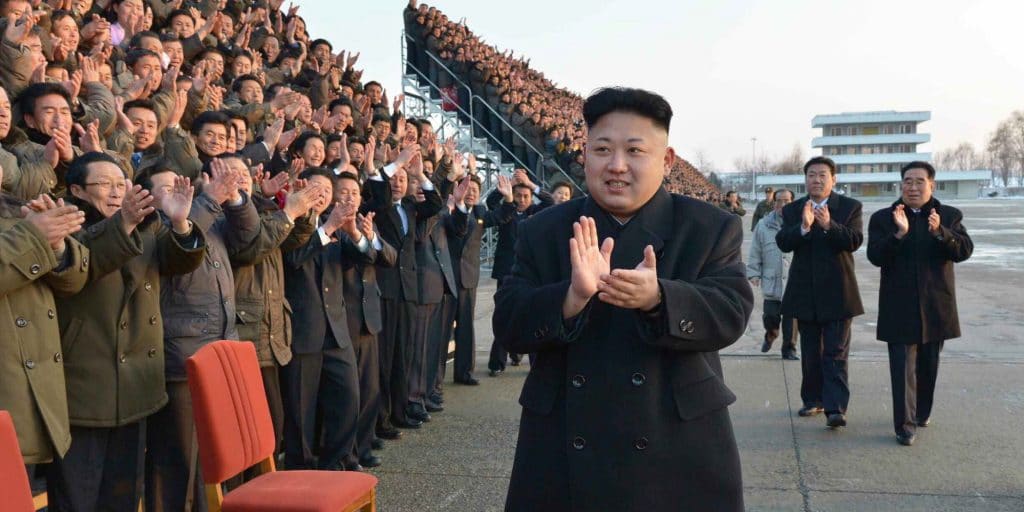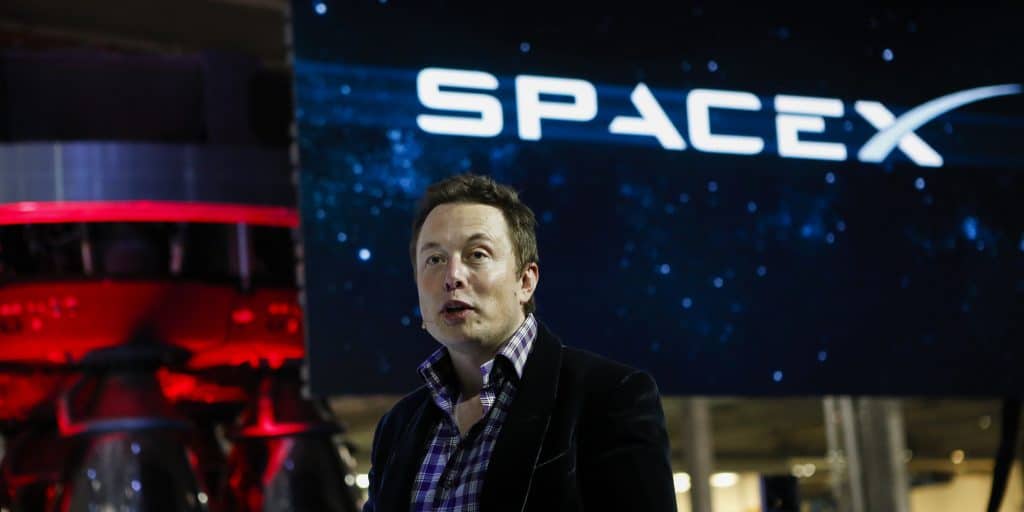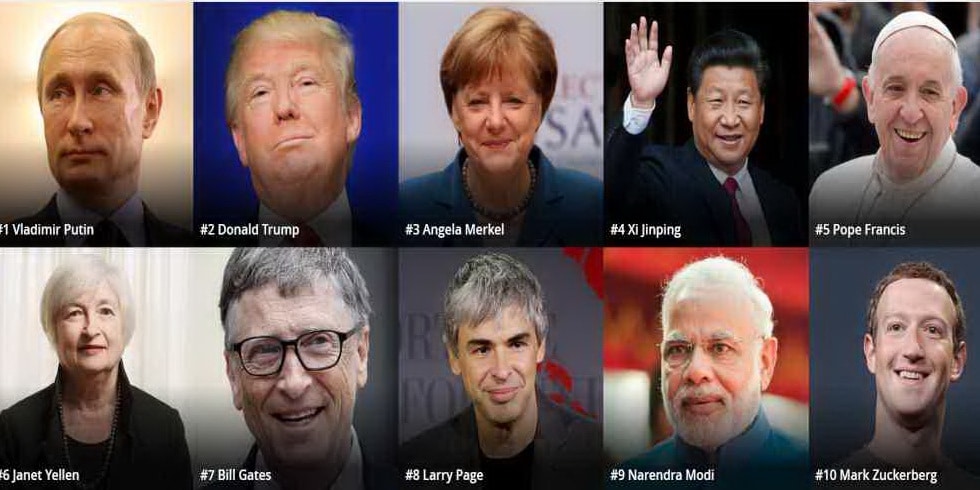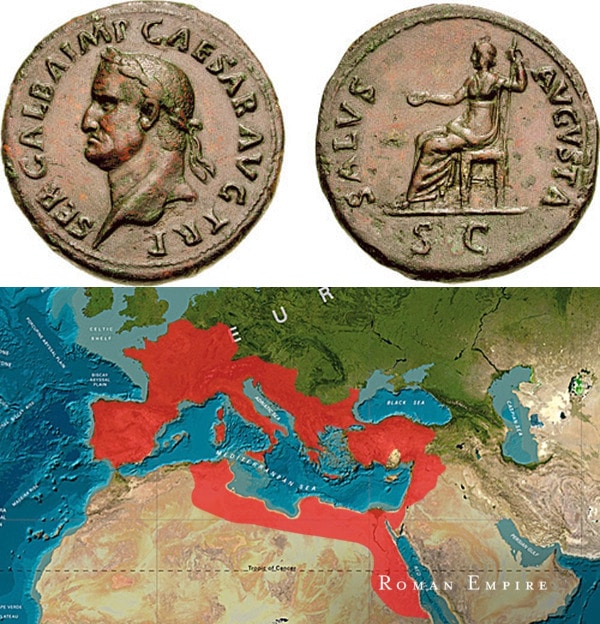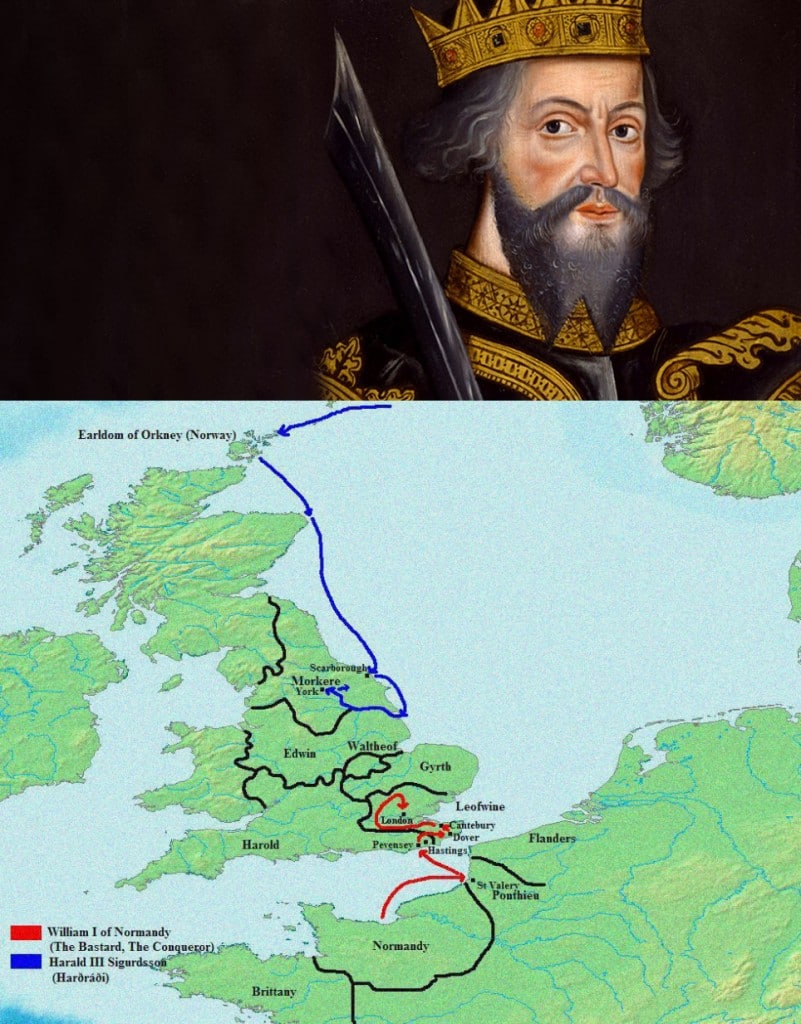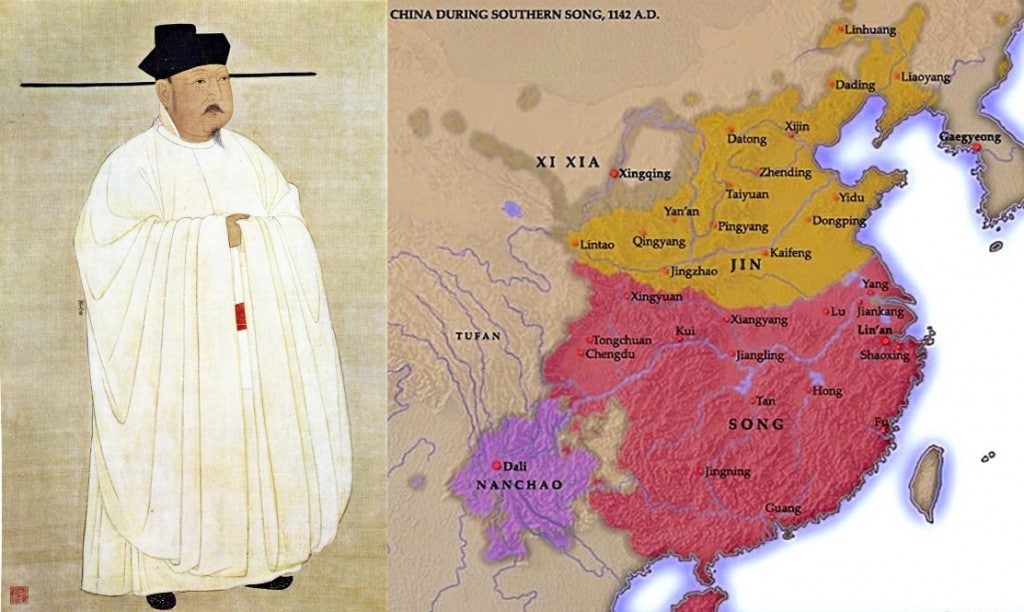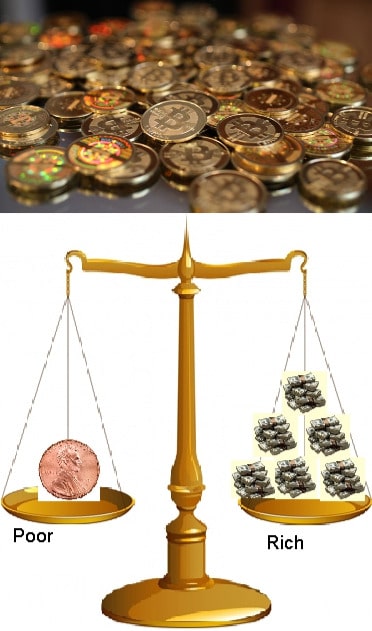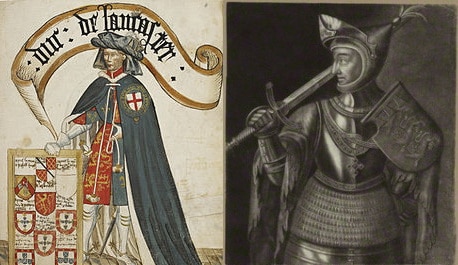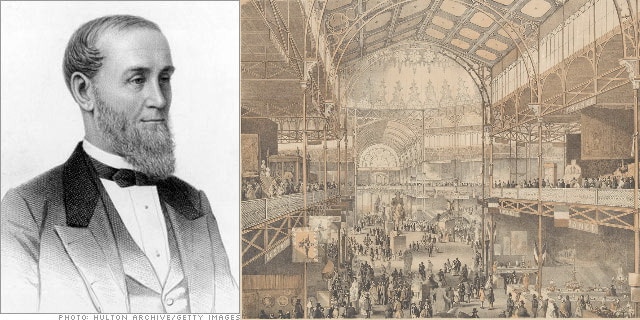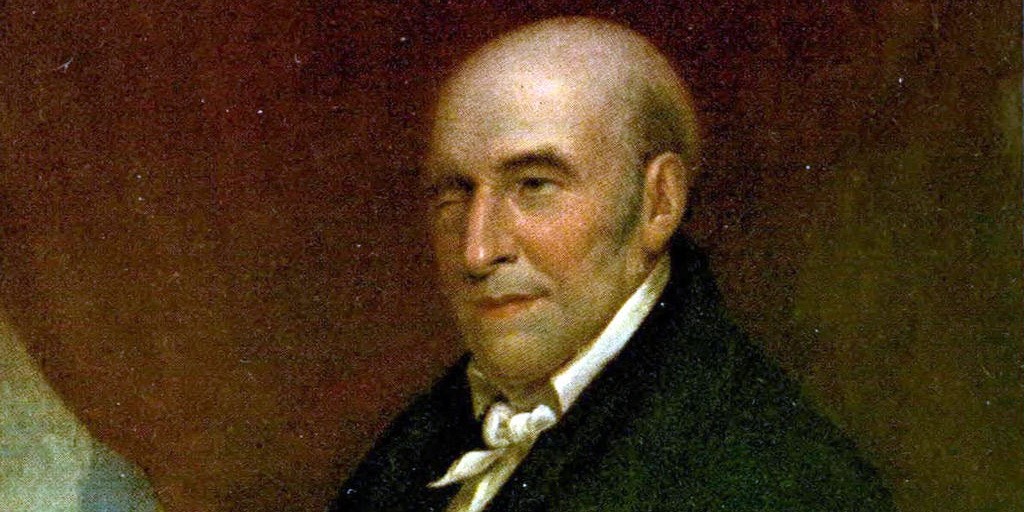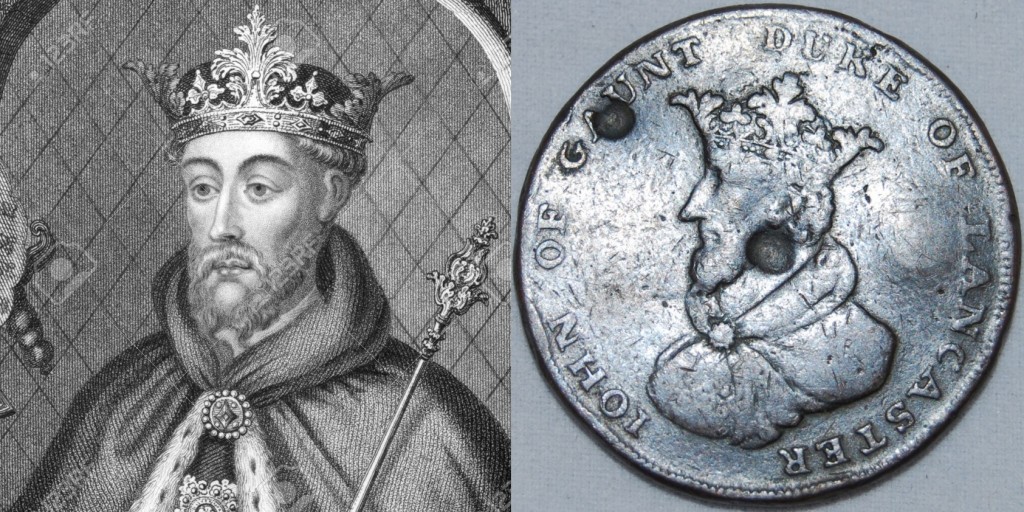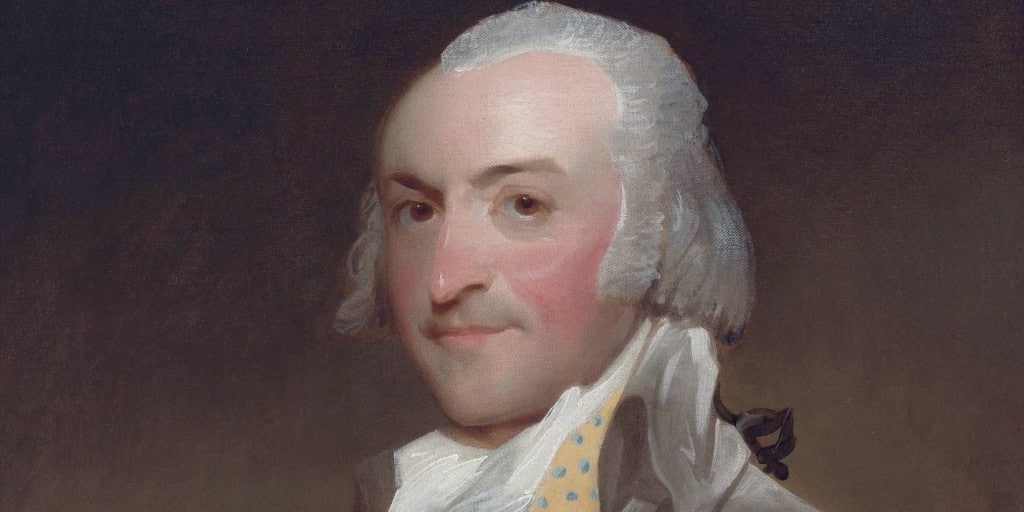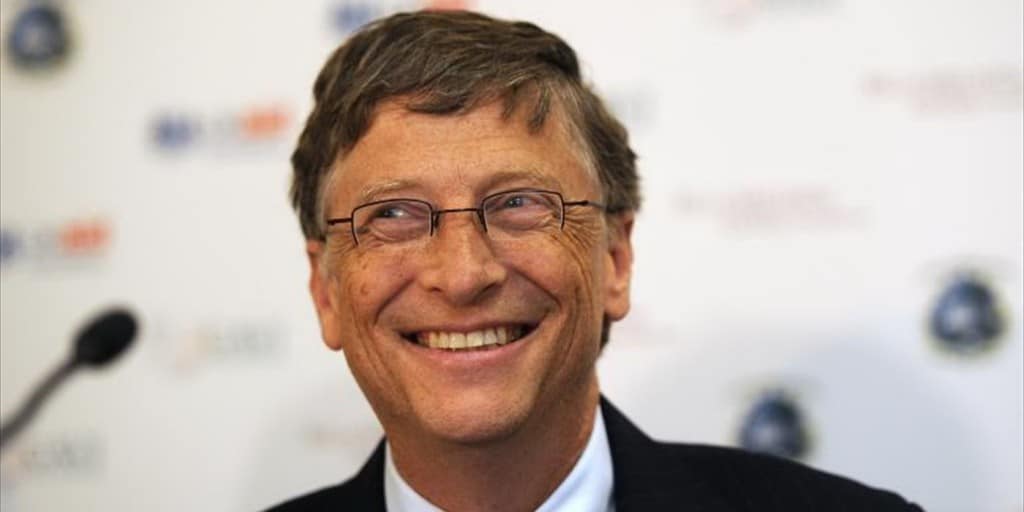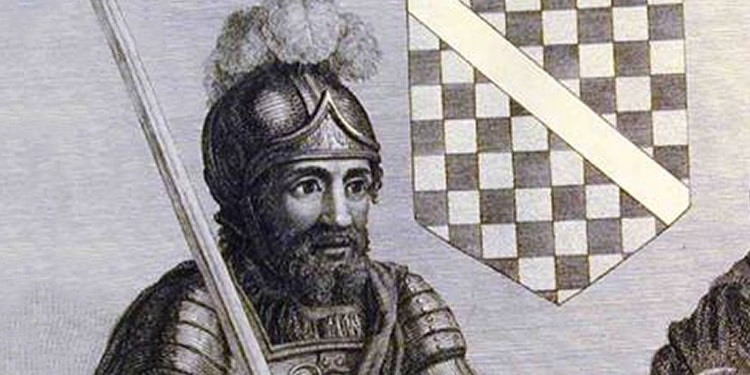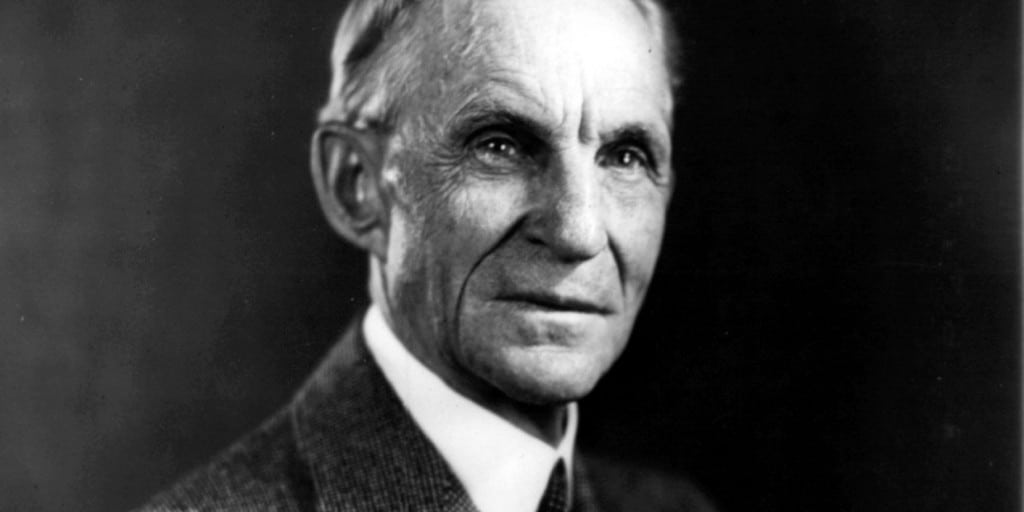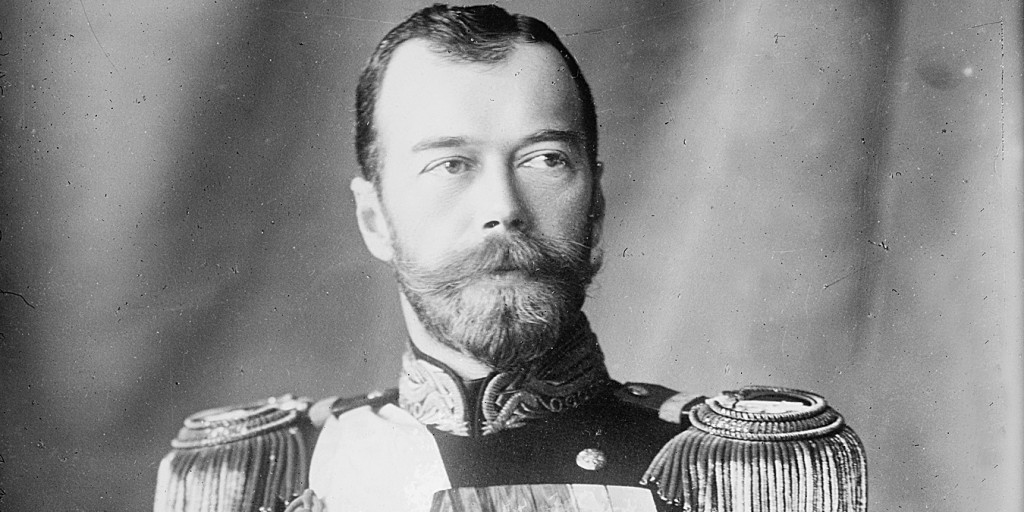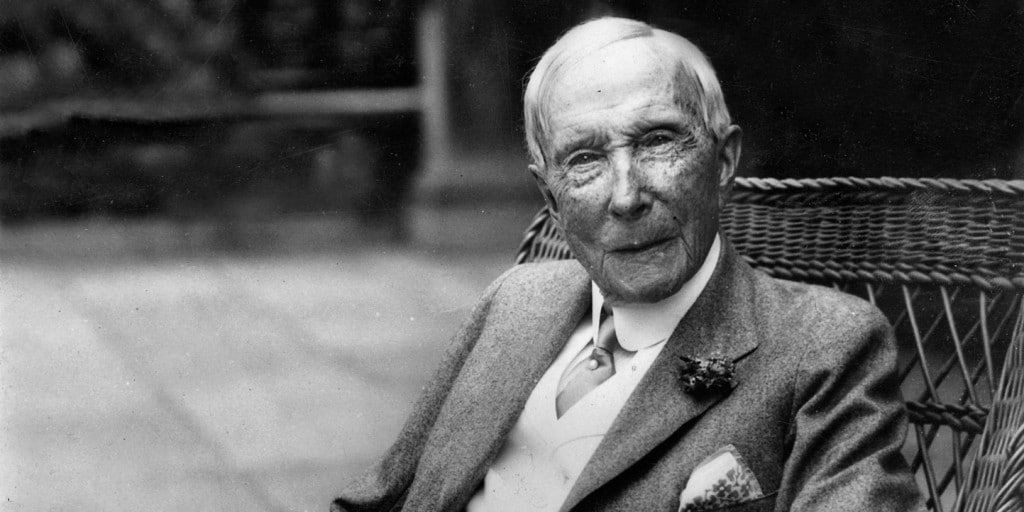Most Influential
Who Are the World’s Most Influential People?

You can probably at least guess who some of the most influential/powerful people in the world are, but Forbes magazine goes a little further than guess-work, and their editors annually come up with a definitive list, which is comprised of one person for every 100 million on earth, ie 74 people whose actions and control have the most effect on significant numbers of the population.
Perhaps unsurprisingly, people high up in the political, financial and business worlds figure prominently on the list, as do some of the individually richest people, but the method of selecting the highest rankings is logical, although of course the list is still somewhat subjective and therefore debateable.
The first of Forbes’ criteria asks
[one_half]
[/one_half][one_half_last]
‘Does the person exercise power over many people?’ (NB – North Korean dictator Kim Jong-un (#43) has near absolute control over the lives of the 25 million people who live in his country, and is known to punish dissent with death).
[/one_half_last]
Secondly
[one_half]
[/one_half][one_half_last]
‘Just how much financial clout does the person have, directly and/or indirectly, including some of the richest individuals?’ GDP is the measure for political leaders, and revenues and profit for business leaders.
[/one_half_last]
The third question asks
[one_half]
[/one_half][one_half_last]
‘Is the person powerful in more than one sphere?’ When selecting only 74 people, being powerful in two or more areas is clearly beneficial. Elon Musk at #21 exercises considerable influence through TESLA in the automotive industry, and in space/satellites through SpaceX.
[/one_half_last]
The fourth criteria
[one_half]
[/one_half][one_half_last]
assesses whether the person actually utilises their power, how, and over what numbers of the population, nationally or internationally, for better or worse? There are many ‘rich’ people who actually choose to have very little direct influence in the world – or even on the company they notionally ‘own’ – although still perhaps as philanthropists.
[/one_half_last]
Finally
[one_half]
[/one_half][one_half_last]
all editors are asked to assess the nominated people on each of these criteria, and all their scores are averaged into a definitive complete score, and hence ranking. It should be noted that the rankings are based on something of a crystal ball scenario – ie who is likely to exercise the most influence in the coming year, not necessarily who has the best record to date.
[/one_half_last]
A few general observations
11 people on the list are appearing for the first time, plus two re-entries.
Only six women appear on the list, and although two are ranked in the top six, this represents just 8%: two are political leaders, two high in the financial world, and two CEOS.
23 countries are represented, with the highest number by country being 32 from the USA.
Both the youngest (Mark Zuckerberg aged 32 – Facebook) and the oldest (Warren Buffett aged 86 – investor), are from the US.
Politicians/leaders fill 28 slots, including significantly Pope Francis at #5 who influences well over a billion Catholics in a myriad number of countries.
Several notorious, but undoubtedly influential figures appear – #43 Kim Jong-un, #63 Bashar al-Assad, #70 Rodrigo Duterte, Abu Bakr al-Baghdadi (#57 – Islamic State) and Ayman al-Zawahiri (#71 – Al Qaeda).
Barack Obama(#48) and Francois Hollande(#23) are listed, even though their influence will diminish significantly as they vacate their respective presidencies.
John Roberts(#50), the Chief Justice of the US Supreme Court is included in this category as he is a political appointee, and as such is extremely influential regarding US constitutional matters.
There is a big spread regarding age, as already intimated – eight listed are over 80, seven are in their 70s, 28 in their 60s, 18 more over 50, 11 in their 40s, and apart from Mark Zuckerberg just Kim Jong-un in their 30s. Success is apparently gained through experience as evidenced across all sectors, although not necessarily in the business of IT.
Rankings:
Forbes ranks Russian President Vladimir Putin as the most powerful person in the world for the fourth year in a row; his officially unknown personal fortune may also be a significant factor in how he wields power.
Ranked second – in the world’s richest democratic country and regardless of his demeanour – is US President-elect Donald Trump, although as has been seen with his predecessor, the co-operation of Congress is often essential in the wielding of presidential power. Trump is also wealthy, but his net worth is also indeterminate.
The most powerful woman in the world is ranked number three overall, Chancellor of Germany Angela Merkel, who exercises considerable influence over the European Union too, as Germany is by far the strongest economy in Europe.
Xi Jinping, leader of the world’s most populous nation China, is ranked at four – the sheer size and potential economic as well as military strength of the country under his control is reason enough for his position on the list.
The top five is rounded out by Pope Francis, not only because of the 1.2 billion Catholics who (usually) hang on his every word, but also because of the financial strength of the Vatican, estimated by some authoritative sources to be the richest entity in the world – certainly a very useful influential tool to have in your bag.
The highest ranked person in the financial world is Chair of the Board of Governors of the US Federal Reserve System, Janet Yellen at #6 – she effectively controls the Federal Reserve interest rate, which has a huge effect on the availability of money in the US, as it sets the minimum interest rate at which money can be borrowed.
At #7 is Bill Gates, with the highest (official) personal fortune in the world estimated at over $80 billion, but who distributes his wealth through the Bill and Melinda Gates Foundation, and is highly respected and therefore influential, not simply for his wealth and how he earned it, but also for his extremely generous philanthropic activities, which may inadvertently wield a certain amount of influence. He remains a Microsoft board member, but retains a mere 2.5% of company shares.
Larry Page of Alphabet – the umbrella company which controls Google – is the highest ranked CEO at #8; enough said? Ah! He also has personal net worth estimated at close to $40 billion!
Prime Minister of India, Narendra Modi at #9, has at least official control over the world’s most populous democracy, but is actually acknowledged to be widely popular on a personal level too – not always the case with those in power even in a democracy – and so is an effective ruler of 1.3 billion people.
The aforementioned Mark Zuckerberg at #10 is the co- creator and founder of Facebook. As (social) media strength is so powerful around the world today, who can doubt the influence of this young man, though even he could not have anticipated just what that would mean when his innovation was launched just 12 years ago in 2004? Personal wealth – over $50 billion.
One other person worth mentioning who doesn’t appear in the top 25, nor in the other lists below, is #27 Doug McMillon, CEO of Wal-Mart, which with 2.3 million employees is the largest private employer in the world.
The remaining influential people in the top 25 rankings are:
| Rank | Name | Position |
|---|---|---|
| 11 | Mario Draghi | Governor, European Central Bank |
| 12 | Li Keqiang | Premier, PRC |
| 13 | Theresa May | Premier, UK |
| 14 | Jeff Bezos | Amazon.com |
| 15 | Warren Buffett | Berkshire Hathaway (investor) |
| 16 | Salman bin Abdulaziz Al Saud | King, Saudi Arabia |
| 17 | Carlos Slim Helu | America Movil |
| 18 | Ali Hoseini-Khamenei | Iran (effective ruler) |
| 19 | Jamie Dimon | JP Morgan Chase |
| 20 | Benjamin Netanyahu | Premier, Israel |
| 21 | Elon Musk | Tesla Motors |
| 22 | Jeffrey Immelt | General Electric |
| 23 | Francois Hollande | President, France |
| 24 | Rex Tillerson | ExxonMobil |
| 25 | Christine Lagarde | MD, International Monetary Fund |
The females in the rankings are:
| Rank | Name | Position |
|---|---|---|
| 3 | Angela Merkel | Chancellor of Germany |
| 6 | Janet Yellen | US Federal Reserve Chairperson |
| 13 | Theresa May | Premier, UK |
| 25 | Christine Lagarde | Managing Director, IMF |
| 61 | Ginni Rometti | CEO, IBM |
| 62 | Mary Barra | CEO, General Motors |
The top five in the world of finance are:
| Rank | Name | Position |
|---|---|---|
| 6 | Janet Yellen | Governor, US Federal Reserve System |
| 11 | Mario Draghi | Governor, European Central Bank |
| 15 | Warren Buffett | Berkshire Hathaway, Investor |
| 25 | Christine Lagarde | Managing Director, IMF |
| 42 | Jim Yong Kim | President, World Bank |
The top five CEO/business leaders are:
| Rank | Name | Position |
|---|---|---|
| 8 | Larry Page | CEO, Alphabet (Google) |
| 10 | Mark Zuckerberg | CEO/Chairman, Facebook |
| 14 | Jeff Bezos | CEO, Amazon.com |
| 17 | Carlos Slim Helu | Chairman, America Movil |
| 19 | Jamie Dimon | CEO, JPMorgan Chase |

Most Influential
Controlling The World’s Wealth
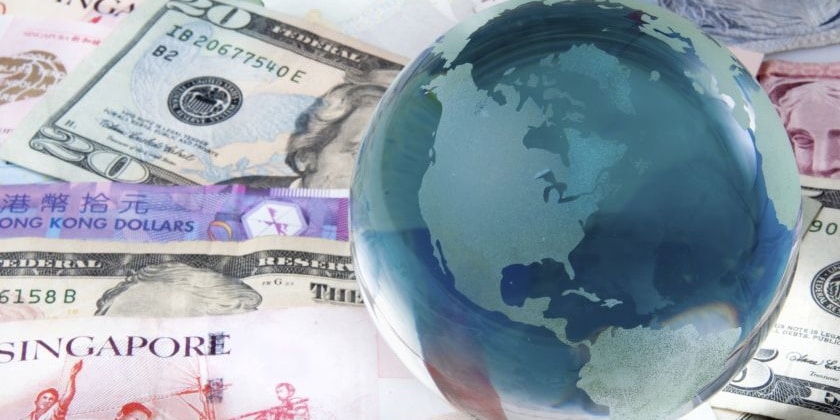
You would be forgiven for believing that too much of the world’s wealth is in the hands of too few people, and you could be right, but wasn’t this always the case, throughout history?
Anyone with some knowledge of history could probably conclude that there were many times in the past when even fewer people were in control of even more of the (known) world’s wealth at the time, at least notionally. Merely thinking of some of the major empires in the past would suggest that that this was the case, when power was (apparently) absolute, when monarchs ruled by ‘divine right’, or emperors by conquest and therefore owned all that they had conquered.
Authoritative sources estimate that today one percent of the world’s population owns, or at least controls, over 50 per cent of the world’s wealth – put slightly differently in raw figures, that just 62 people have now amassed the same wealth as the bottom, poorest 50 per cent of the world’s population. Of course they do not ‘own’ half the world, but in the past this was exactly the case in some societies.
Egyptian pharaohs
[one_half]
[/one_half][one_half_last]
Roughly in chronological order, in the known world, Egyptian pharaohs not only controlled all within the geographical area of the empire, but were also regarded as gods and therefore perfectly entitled to it. Apparently this homage ceased at death, when their sarcophagi were routinely looted, but estimates of the treasure buried with them must have made it hard for their surviving subjects to resist temptation.
[/one_half_last]
Roman emperors
[one_half]
[/one_half][one_half_last]
Roman emperors themselves were notionally the controllers of around 20 per cent of the empire’s wealth – itself now estimated to have been at least one-fifth the wealth of the world – and individually for those such as Augustus around the time of Christ, that amounted to an estimated $4-5 trillion, personally, ie one person controlled four per cent of the world’s wealth. In today’s world, only the Āl Saʻūd royal family and Rothschild family can be listed as being anywhere near in the same bracket in raw numbers – ‘families’, note.
[/one_half_last]
William the Conqueror
[one_half]
[/one_half][one_half_last]
On a somewhat smaller scale, the feudal system of the middle ages in Europe in particular – approximately the years 800-1500 – meant that land (and its produce) was granted by the monarch to (usually) high-ranking subjects, in return for loyalty and support as the monarch dictated. Effectively the monarch owned everything, including people, as the latter could not survive without pledging allegiance to their lord, and therefore to the king. For example, William the Conqueror of England granted large parts of Britain to a few senior henchmen, effectively to run these areas in his name. Modern estimates are that, as well as William himself, Williams de Warrene (1041-88) and Allan Rufus (1040-93) are in the dozen richest people who ever lived.
[/one_half_last]
Emperor Shenzong of Song
[one_half]
[/one_half][one_half_last]
As will have been noticed, land was the most important asset until at least the industrial revolution, and even then what was under it became of just as much importance. At the same time as the aforementioned William, Emperor Shenzong of Song (25 May 1048 – 1 April 1085) ruled what became modern China, and is estimated to have controlled as much as 30 per cent of the world’s GDP.
[/one_half_last]
Genghis Khan
[one_half]
[/one_half][one_half_last]
Wealth (and legality) didn’t come from the barrel of a gun, then, but certainly from military power, the ability to conquer lands and subjugate people. Genghis Khan is a spectacular example – his 13th century empire was once the largest in history, however, he eventually over-reached himself, simply being unable to control the huge area that he had conquered, a fate which had befallen the Romans too: perhaps this still sounds familiar when applied to the empires which grew-up as recently as the 19th and 20th centuries!? Eventually disenfranchised and/or subjugated people become rather restless.
[/one_half_last]
Mansa Musa, the Sultan of Timbuktu
[one_half]
[/one_half][one_half_last]
The richest person who ever lived is, according to several authoritative sources, Mansa Musa, the Sultan of Timbuktu or of Mali, which around 1300 when he ruled covered most of west Africa. The area is large, but most importantly it was the biggest producer of gold and salt in the world, such that best estimates put his wealth at a minimum of $400 billion and possibly as high as $700 billion. Of course, the figures quoted are of known or estimated worth, not potential wealth – ie how much gold was yet to be found and/or mined. Regardless, this amount credited to one person at that time indicates that the situation in the modern world isn’t maybe as unusual or lop-sided as we might think.
[/one_half_last]
John D. Rockefeller, Andrew Carnegie
[one_half]
[/one_half][one_half_last]
The next important era probably didn’t occur until the industrial revolution, when the type of monopolies changed from land itself to means and methods of production, including control of resources, but also through control of communications. Two of the more recent richest people ever in the world were John D. Rockefeller, who at one point controlled a majority of oil production and distribution in the USA, and Andrew Carnegie, who had similar control over iron and steel also based in the USA. Both of these gentlemen had wealth of well over $300 billion.
[/one_half_last]
Influence the well-being of the population
[one_half]
[/one_half][one_half_last]
Perhaps the, at least western world today is not so different from some in history – some form of social organisation has always existed, but the current economic order is not beyond the people’s control. The intervention of governments has, to a large extent, minimised the likelihood of such monopolies occurring today across a broad spectrum of products, and the media. A major difference is that governments are now rather more democratic than in previous centuries, so in theory ‘the people’ have the means to control excessive unequal distribution of wealth, to limit governments ability to impose taxes or implement laws, which could favour the rich, or influence the well-being of the population in general. We should not compare past and current societies on assessed value alone, because comparative inequality over time is difficult to establish mostly because of lack of accurate statistics. However, those available for the last 100 years suggest that inequality has never been as biased it is now since the 1930s.
[/one_half_last]
Nevertheless, through education and communication, we now know the factors that drive inequality today – and are able to debunk the supposition that the world must invariably be this way – which means we can challenge it, plus society has the potential to change it. All that’s needed is the will!
Most Influential
Net Worth of The Richest Who Ever Lived
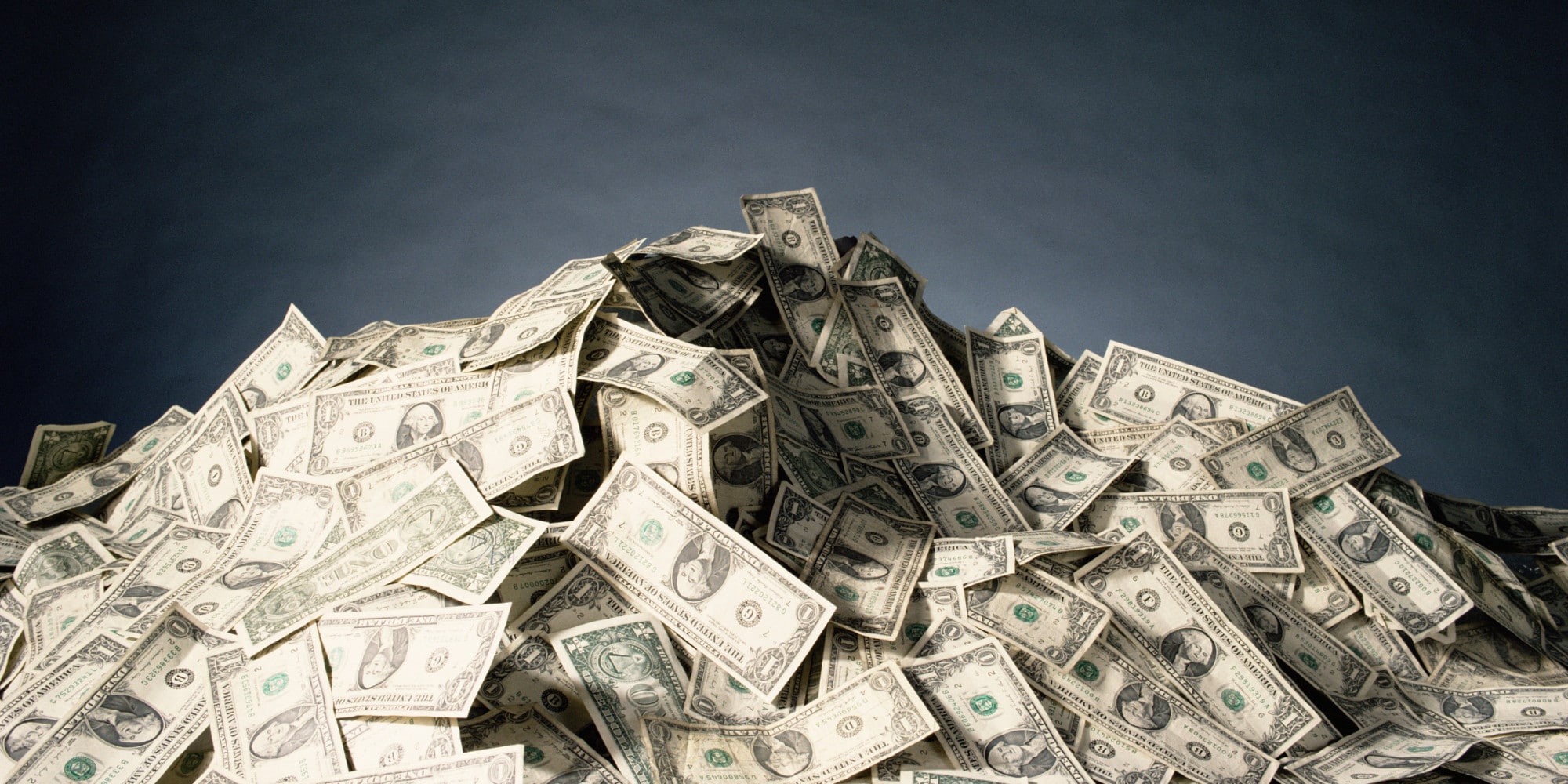
Money holds a fascination for many, both those who have or have had obscene amounts, as well as those who are broke or bankrupt. To many, a billion dollars ‘in their pocket’ is unimaginable, possibly because physically the mound of banknotes would never fit in anyone’s pocket, but also because there is always the thought: “What would I do with it, spend it on?” Also apart from winning something like ‘the lottery’ how would I ever earn that much?
There are now almost 2,000 people in the world with assets of over a billion dollars – written in full that is 1,000,000,000 minimum – but there have been many billionaires in history, at the equivalent of that amount today, including some of the richest people who have ever lived. Actually, only one living person makes the list of the 20 richest of all time – of course that is Bill Gates – and only another six lived into the (early) 20th Century, and just one of them into the 21st.
So who make-up the list, which naturally is open to debate? Some you will never have heard of unless you are an ardent student of history, most probably including the number one, but who they are and how they made their money is of interest, especially as their stories indicate just how much the world has changed – the value of land itself has, however, held up well over the years. Two periods of English history stand out, as does the period in the USA when the industrial revolution’s effects came to fruition. For a variety of reasons, many on the list would never reach such heights today, although surprisingly few made their fortune through corrupt activities.
-
Friedrich Weyerhaeuser (1834-1914) Net Worth: $80 Billion
German-born but a migrant to the USA at 17 after the 1848 revolutions around Europe, he used his share of profit from the sale of the family farm to move to Illinois and work on the Rock Island Line Railroad, then into a sawmill business which he bought. His steady acquisition of other lumber companies saw his business and fortune grow, such that the Weyerhaeuser Company became, and is still the largest of its type in the world.
-
Henry Duke of Lancaster (1310-61) Net Worth: $85.1 Billion
Henry inherited as the only son of Henry, 3rd Earl of Lancaster, but was a commander during the early years of the 100 Years War, before undertaking diplomatic missions around Europe, including being held hostage and ransomed, but for which he was rewarded by King Edward 111 with stewardship of the north of England, and being a founding member of The Order of the Garter in 1348.
-
A.T. Stewart (1803-76) Net Worth: $90 Billion
Irish-born but American by choice, Stewart built what was the largest retail store in the world in New York City in the late 1840s, but also had extensive interests in mills and clothing factories. The first mail order system, selling his goods around the US, helped considerably to build his fortune.
-
Stephen Girard (1750-1831) Net Worth: $105 Billion
French-born but American by adoption after being forced there during the War of Independence, Girard made his fortune through shipping, then moved into banking, reputedly ‘saving’ the US Government during the War of 1812 with enormous loans. Of course he then benefited greatly, to the stage where he is assessed as being the fourth or fifth richest American of all time.
-
John of Gaunt (1340-99) Net Worth: $110 Billion
The third son of King Edward 111, he was a significant influence during the minority of his nephew the future King Richard 11, and was amply rewarded with land grants on which, under the feudal system, he was able to collect rent, and taxes on produce.
-
Richard FitzAlan (1306-76) Net Worth: $118.6 Billion
Major rewards in land grants from a grateful King Edward 111 following the wars against Scottish Independence, plus inheritances of land, and titles bestowed – Earl of Arundel and Earl of Surrey – elevated FitzAlan to one of the richest people in the world at that time.
-
John Jacob Astor (1763-1848) Net Worth: $121 Billion
Born in Germany, at 16 Astor migrated to London and then to New York City, en route meeting a fur trader. He soon began purchasing and processing furs, and marketing them at a significant profit, especially around Europe, later becoming involved in the (illegal) opium trade through China, before investing heavily in real estate.
-
Bill Gates (b.1955) Net Worth: $136 Billion
The only living person to appear on the list – now shared with wife Melinda – his development of computers and computing through his Microsoft company has been an enormous influence in bringing the world into the age of information technology. An American self-made billionaire born in 1955, he co-founded Microsoft in 1975, and the rest is history, except that the company is still a tour de force in the IT world.
-
Williams de Warenne (1041-88) Net Worth: $147.13 Billion
A senior commander under William The Conqueror at the Battle of Hastings in 1066, earned him his reward as the 1st Earl of Surrey and land grants – which made him one of he largest land owners in England at that time – the main source of his wealth. Notably, with Gundred his wife, he founded the first monastery in England, Lewes Priory, where they are both buried.
-
Alan Rufus (1040-93) Net Worth: $178.65 Billion
A key commander under William The Conqueror at the Battle of Hastings, initially Count of Brittany, Rufus benefited enormously from William’s generosity ennobling him as 1st Lord of Richmond, and in granting him lands in both (what is now) northern France, and England. Under the feudal system, he was entitled to ‘tax’ all produce from his lands, a significant contribution to his net worth, as well as the value of the land itself
-
Cornelius Vanderbilt (1794-1877) Net Worth: $185 Billion
His nickname of ‘Commodore Vanderbilt’ gives the clue to his business – shipping – built-up at a time when international trade was expanding exponentially, although initially based on the east coast of the USA. However, the American business magnate did not neglect domestic requirements either, building railroads across the country, particularly during the Civil War, and he also constructed the only line to run into the centre of New York City.
-
Henry Ford (1863-1947) Net Worth: $199 Billion
The American developer and manufacturer of the iconic Model T Ford automobile, which brought affordable motoring to the world, is another one of the few self-made billionaires on the list. He began from scratch in 1881, founded his first company in 1899, and showed the world how to utilise the assembly line to efficiently produce almost any manufactured item.
-
Muammar Gaddafi (1943-2011) Net Worth: $200 Billion
The Libyan dictator ran the country with an iron fist from 1969 until his overthrow in 2011, during which time he accumulated an enormous fortune, largely from the proceeds of natural resource sales, notably oil. He invested in real estate around the world and various international companies, in such secret that assets are still being discovered five years after his demise.
-
William the Conqueror (1028-87) Net Worth: $229.6 Billion
The last invader of England in 1066, being king under the feudal system meant that he virtually owned all land, except that in his gift given out to reward close supporters. The value was in the land and its specific use, almost entirely agricultural products.
-
Mir Osman Ali Khan (1886-1967) Net Worth: $230 Billion
The last Nizam (independent administrator) of Hyderabad, India, Mir Osman had virtual autonomy under the British, enabling him to gather revenues from gold and diamond mining, as well as from all land use in what was effectively the last feudal system in existence under the British. His philanthropy was notable, however, especially in education and agricultural research and development.
-
Nikolai Alexandrovich Romanov (1868-1918) Net Worth: $300 Billion
The last of the Romanov dynasty of Russian Tsars which had ruled since 1613, the last Tsar proved incompetent as a ruler, and totally out of touch with the European-wide push for more democratic government, culminating in the disastrous losses of manpower in World War 1. He abdicated in 1917, and with his family was executed by the Bolsheviks in 1918. His wealth came from owning virtually anything of value in Russia – actual assessment of which is an estimate only.
-
Andrew Carnegie (1835-1919) Net Worth: $310 Billion
Scottish-born Carnegie migrated to the US in his early teens, and worked on the railroads while investing wisely, such that in 1885 he founded the Carnegie Steel Company in Pittsburgh. He also concentrated on vertical integration, developing a complete business model which he sold in 1901, and then spent the rest of his life giving away the profits – he is renowned as one of the worlds all-time most generous philanthropists.
-
John D. Rockefeller (1839-1937) Net Worth: $340 Billion
The self-made American billionaire was possibly lucky in being in the right place at the right time, but he ‘put his money where his mouth is’, and subsequently profited enormously from the increasing demand for oil, and petroleum products in the second half of the 19th century. He founded Standard Oil in 1870, subsequently divided into many of the companies whose names are familiar to this day. He was also a magnanimous philanthropist, especially towards education, medicine and scientific research.
-
The Rothschild Family (Mayer Amschel Rothschild 1744-1812) Net Worth: $350 Billion
The Rothschild name is synonymous with banking and finance, which words in themselves mean ‘money’. The patriarch was Mayer Amschel Rothschild, who founded his banking business in Frankfurt – then a free city – in the 1760s, which was spread through his five sons to London, Naples, Vienna, and Paris. Although since diluted in influence by divisions between hundreds of descendants, the family is still involved in financial services, mining, energy, real estate, wine, mixed farming as well as philanthropic activities.
-
Mansa Musa I (1280-1337) Net Worth: $400 Billion
(Sultan) Musa ruled over virtually the whole of West Africa and, in a system similar to the feudal rulers in Europe, was entitled to tax all land and products in his domain. These included the mining of gold and precious jewels, as well as trade across thousands of kilometres, and the Atlantic and Mediterranean coasts. However, he was a notable promoter of education, and infrastructure such as his grand palace and university in Timbuktu, in an empire encompassing over 400 other significant cities and towns.
-

 Rappers9 months ago
Rappers9 months agoYung Berg Net Worth
-

 Singers1 year ago
Singers1 year agoAdam Lambert Net Worth
-

 Models9 months ago
Models9 months agoKendra Wilkinson Net Worth
-

 Producers1 month ago
Producers1 month agoTeddy Riley Net Worth
-

 Lists2 days ago
Lists2 days agoWhere are those from “Yukon Men” today?
-

 Singers4 months ago
Singers4 months agoJustin Bieber Net Worth
-

 Celebrity Money10 months ago
Celebrity Money10 months agoThe 10 Best-Paid Musicians in the World
-

 Rappers1 year ago
Rappers1 year agoLecrae Net Worth

